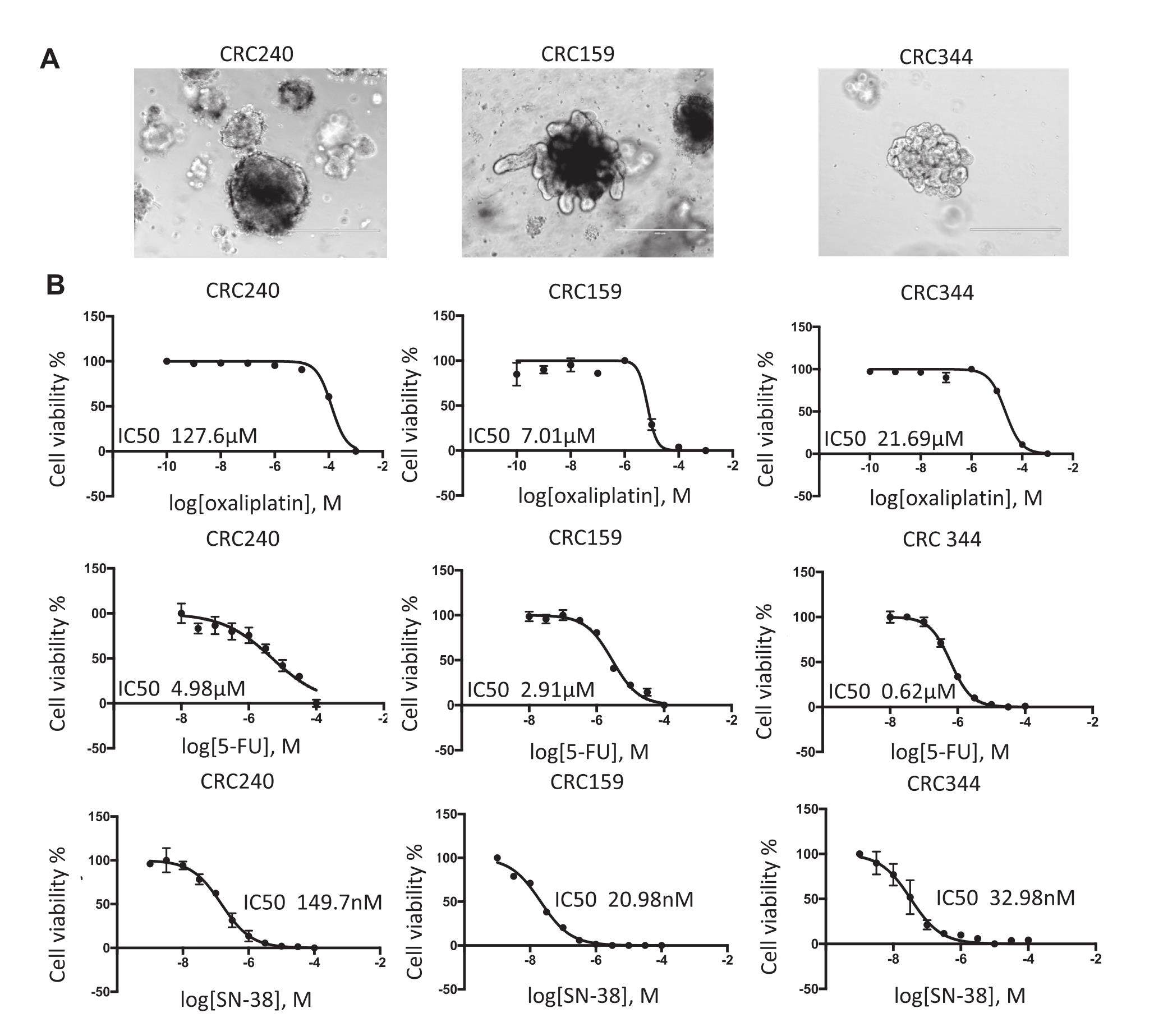
Integrated chromatin and transcriptomic profiling of patient-derived colon cancer organoids identifies personalized drug targets to overcome oxaliplatin resistance


Colorectal cancer is a leading cause of cancer deaths. Most colorectal cancer patients eventually develop chemoresistance to the current standard-of-care therapies. Here, we used patient-derived colorectal cancer organoids to demonstrate that resistant tumor cells undergo significant chromatin changes in response to oxaliplatin treatment. Integrated transcriptomic and chromatin accessibility analyses using ATAC-Seq and RNA-Seq identified a group of genes associated with significantly increased chromatin accessibility and upregulated gene expression. CRISPR/Cas9 silencing of fibroblast growth factor receptor 1 (FGFR1) and oxytocin receptor (OXTR) helped overcome oxaliplatin resistance. Similarly, treatment with oxaliplatin in combination with an FGFR1 inhibitor (PD166866) or an antagonist of OXTR (L-368, 899) suppressed chemoresistant organoids. However, oxaliplatin treatment did not activate either FGFR1 or OXTR expression in another resistant organoid, suggesting that chromatin accessibility changes are patient-specific. The use of patient-derived cancer organoids in combination with transcriptomic and chromatin profiling may lead to precision treatments to overcome chemoresistance in colorectal cancer.
